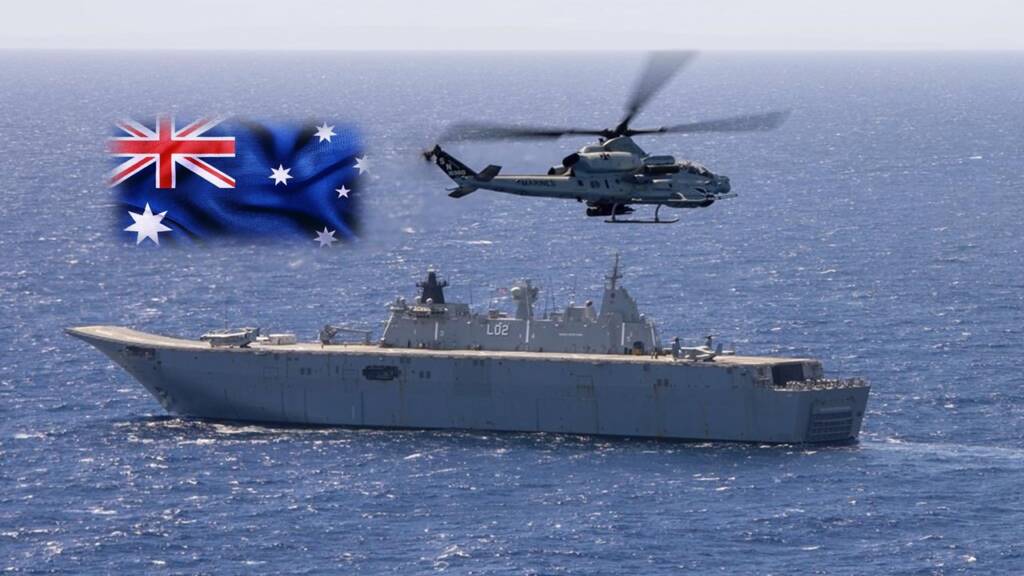The Government of Germany faces potential repercussions as it embarks on a significant naval restructuring following France’s recent military adjustments. The proposed overhaul, spearheaded by Defence Minister Richard Marles in response to a review led by retired US vice-admiral William Hilarides, aims to double the nation’s warship count and enhance the firepower of its surface fleet. The initiative, however, raises concerns about potential discord with Germany.
To facilitate the strengthening of the naval capabilities, there is a possibility of reallocating funds from the troubled offshore patrol vessel program. This move, though advantageous for acquiring missile-laden ships, may provoke displeasure from Germany. The current proposal suggests replacing the Luerssen-designed offshore patrol vessel, already in production in Australia, with more heavily armed corvettes.
Join us on Telegram: https://t.me/tfiglobal
Defence Minister Marles has unveiled plans to enhance the navy’s capabilities with a substantial increase in the surface combatant fleet. Currently comprising 11 vessels, including eight Anzac-class frigates and three Hobart-class air warfare destroyers, the navy is poised to expand to at least 22 warships. Marles acknowledges the urgency to have more operational surface combatants.
To manage costs, the government is considering reducing the number of Hunter-class frigates from the initially planned nine to six. The review reveals a staggering estimated cost of $65 billion to build nine ships in Adelaide, exceeding the recent $45 billion estimate and doubling the original $30 billion projection from 2018. Concerns about the Hunter-class frigates’ capabilities, with only 32 missile cells despite their 10,000-tonne weight, have prompted reevaluation.
A pivotal point in the review is the fate of the $3.6 billion Arafura-class offshore patrol vessel program, previously flagged as a “project of concern.” Criticized for their limited weaponry, some experts advocate potential sales at a discounted rate to the Philippines, aiming to deter Chinese aggression in the South China Sea.
The 80-meter patrol vessels, crafted by German shipbuilder Luerssen in South Australia and Western Australia, are primarily intended for border protection and fisheries patrol duties. While there are indications from defense industry sources foreseeing a potential reduction in the Arafura program from 12 to six boats, concrete details remain undisclosed.
Speculation about scaling down the patrol boat initiative is met with concerns, as two vessels are already in the process of construction. Abandoning the program entirely would not only be challenging but could also strain diplomatic ties with Germany.
Read More: Gas-Gone Germany’s Economy takes a hit
The potential downsizing of the offshore patrol vessels is seen as a strategic move to reallocate funds for the development of more robust naval assets. This could include frigates, destroyers, or corvette-style warships with enhanced weaponry, better suited for active participation in military conflicts.
Marles, in his foreword, highlights findings from Hilarides’ review team, emphasizing the inadequacy of the current and planned surface combatant fleet in addressing present risks and existing cost pressures.
“They also noted that the current surface fleet is the oldest [that] navy has operated in its history,” he writes.
The anticipated government announcement involves the acquisition of corvette-style “tier two” warships, aiming to diversify the mix of surface combatants. These vessels, potentially exemplified by Babcock International’s Arrowhead 140 frigate or a corvette jointly produced by Spanish shipbuilder Navantia, Austal, and Civmec, could offer comparable missile capacity with reduced crew requirements, addressing the navy’s well-documented staff shortage.
The decision on the Arafura program holds diplomatic significance, with the German embassy in Canberra and officials in Berlin closely monitoring developments. Recent defense ties between Australia and Germany add weight to this scrutiny, following a previous contract dispute involving South Korean and German contractors.
Criticism surrounds the offshore patrol vessels for their perceived lack of firepower, particularly the removal of a planned 40mm cannon, replaced temporarily by a 25mm gun.
Jennifer Parker, a maritime security specialist at UNSW, said: “We should up-arm them if we can or get rid of them. I’d be looking to sell them at a reduced price to the Philippines or another South-East Asian nation to help them stand up to China.”
“The problem is they are too long to just do constabulary operations, but they are not capable enough to be used in littoral warfare.They can’t defend themselves and have no effective weaponry.”
Parker emphasizes the need to prioritize Australia’s strategic interests over concerns about potentially offending Germany, highlighting the critical decisions surrounding the nation’s surface fleet.
Read More: The Shocking Twist in Transatlantic Affairs: Germany Rises as U.S. Steps Back
Apart from naval weaponry concerns, criticisms extend to the offshore patrol vessels’ lack of hangars for helicopter storage, limiting their versatility for maritime operations. The project’s setbacks, listed as a “project of concern” in 2021, involve delivery delays and associated support system issues. Defence Industry Minister Pat Conroy acknowledged significant schedule delays and expressed the government’s commitment to collaborative efforts with Luerssen Australia to rectify the project’s course, following meetings with company officials in December.
Hence, the decision to potentially reallocate funds from the Arafura-class offshore patrol vessel program to bolster the surface combatant fleet raises concerns about discord with Germany and the forthcoming decision will shape not only the future of Australia’s naval fleet but also its diplomatic relationships, especially with Germany.
